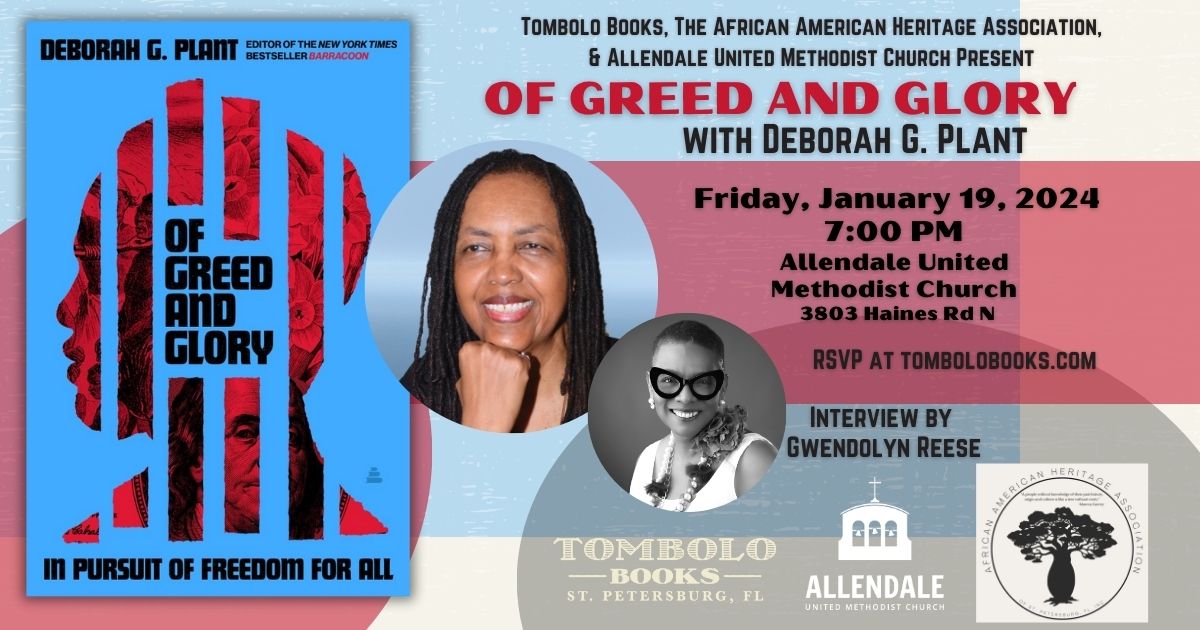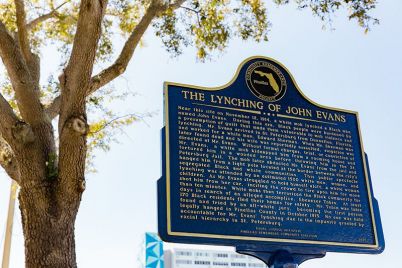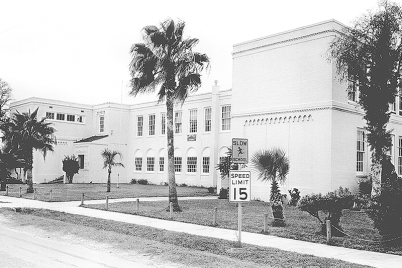Dr. Deborah G. Plant will join Gwendolyn Reese on Friday, Jan. 19, at 7 p.m. at Allendale United Methodist Church, 3803 Haines Rd. N, to discuss her new book, ‘Of Greed and Glory: Black Freedom and the American Pursuit of Popular Sovereignty.’
ST. PETERSBURG — Dr. Deborah G. Plant, editor of The New York Times bestselling “Barracoon: The Story of the Last Black Cargo” by Zora Neale Hurston, joins African American Heritage Association president Gwendolyn Reese, to discuss her new book, “Of Greed and Glory: Black Freedom and the American Pursuit of Popular Sovereignty.”
The event, presented by Tombolo Books in partnership with the Heritage Association, will be held Friday, Jan. 19, starting at 7 p.m. at Allendale United Methodist Church.
Plant’s book offers a dichotomy of personal narrative and research on how the prison industrial complex, born out of slavery, “manifest in the relentless surveilling and policing of Black American citizens and communities; the ongoing deracination, dispossession, and disfranchisement of Black citizens; and the pernicious impoverishment of Black life.
Reese calls the book “a must-read for anyone who values human life.”
Plant, a scholar and literary critic, pinpoints how the modern-day prison system is tied to everything from how traditional accounting is done to the funding of the justice system. She excavates how communities, families and individuals are affected by the prison system and digs into her personal experience as the sister of an incarcerated man.
“This book presents an un-whitewashed history of slavery’s role and how it plays out in the mass incarceration of Black people. I have never had anything laid out for me so clearly as this book presents the information,” Reese said. “Because [Plant’s] brother is serving a life sentence in Angola, the worst and most brutal prison in the United States, she has chosen to use her personal experience to teach us about the inhumanity of the prison industrial complex as it exists today.”
Reese revealed she read the book over a long period, finding that she had to put it down now and then because of how emotionally gut-wrenching the material is. Still, she said, it’s one of the most important books she’s read recently.
“I know that for Black people, it is hard to read and know this history. It is hard to understand, as a human being, that there are groups of people out there that regard you as less than human. And yet, we must understand how these systems work. We have to know.”
Friday’s event provides a unique opportunity to hear from the author directly about her work, and Reese hopes anyone who hopes for a more equitable future attends. It’s reading books like Plant’s and learning about systems of oppression that better equip communities to fight for an America that is representative of the values for which it asserts it stands: freedom and justice.
Many groups are making strides for a more equitable society. Overall, communities and society are more willing than before to talk about complicated history, and “seemingly, we as a society want to work toward the eradication of racism.” To do that, though, the masses must understand how systems of oppression, like the modern industrial complex, operate.
“If you consider yourself an ally, an accomplice in this work, and someone who values all human beings, someone who works toward equity, then this is a must-read for you. I don’t see how anyone can do this work without reading this book.”
Join Plant and Reese on Friday, Jan. 19, at 7 p.m. at Allendale United Methodist Church, 3803 Haines Rd. N.
Click here to register for the event.









